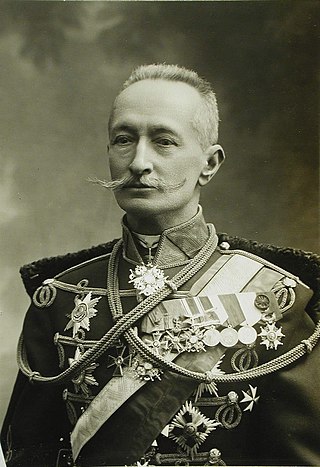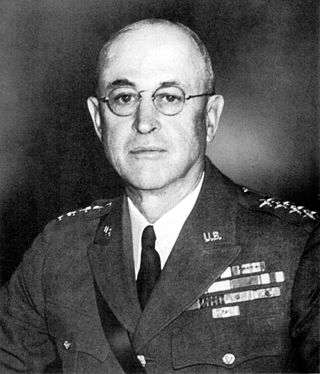The British Expeditionary Force (BEF) was the six divisions the British Army sent to the Western Front during the First World War. Planning for a British Expeditionary Force began with the 1906–1912 Haldane Reforms of the British Army carried out by the Secretary of State for War Richard Haldane following the Second Boer War (1899–1902).

The Brusilov offensive, also known as the "June advance", of June to September 1916 was the Russian Empire's greatest feat of arms during World War I, and among the most lethal offensives in world history. The historian Graydon Tunstall called the Brusilov offensive the worst crisis of World War I for Austria-Hungary and the Triple Entente's greatest victory, but it came at a tremendous loss of life. It was arguably the most successful offensive in the entirety of the First World War. The victory contributed to a morale upsurge among the Russian troops, in 1917, Nicholas II planned a general offensive along the entire front in order to end the Central Powers. After the victory, the Petrograd conference was held at which the post-war structure of the world was discussed. Even despite the losses, the Russian armies were still being reinforced with new forces, the number of weapons increased, and new railways were being built.

Aleksei Alekseyevich Brusilov was a Russian and later Soviet general most noted for the development of new offensive tactics used in the 1916 Brusilov offensive, which was his greatest achievement.

Paul Prosper Henrys was a French general.

The Allies, the Entente or the Triple Entente was an international military coalition of countries led by France, the United Kingdom, Russia, the United States, Italy, and Japan against the Central Powers of Germany, Austria-Hungary, the Ottoman Empire, and Bulgaria in World War I (1914–1918).

Pierre-Thiébaut-Charles-Maurice Janin was a French general and military commander who was the chief of the Allied military mission in Siberia during the Russian Civil War. He is known for his betrayal of the Russian Supreme Leader Alexander Kolchak by giving him to the Soviet revolutionary committee to be executed in Irkutsk.

Viktor Julius Ignaz Ferdinand Graf Dankl von Kraśnik was a highly decorated Austro-Hungarian officer who reached the pinnacle of his service during World War I with promotion to the rare rank of Colonel General (Generaloberst). His successful career met an abrupt end in 1916 due to both his performance on the Italian front and health issues. After the war, he would be a vocal apologist for both his country's war record and the dethroned Habsburg monarchy.

Marie Émile Fayolle was a French general during World War I and a diplomat, elevated to the dignity of Marshal of France.
The Sixth Army was a field army of the French Army during World War I and World War II.
The Armée d'Orient (AO) was a field army of the French Army during World War I who fought on the Macedonian front.

The British Army during the First World War fought the largest and most costly war in its long history. Unlike the French and German Armies, the British Army was made up exclusively of volunteers—as opposed to conscripts—at the beginning of the conflict. Furthermore, the British Army was considerably smaller than its French and German counterparts.

Operation Alberich was the code name of a German military operation in France during the First World War. Two salients had been formed during the Battle of the Somme in 1916 between Arras and Saint-Quentin and from Saint-Quentin to Noyon. Alberich was planned as a strategic withdrawal to new positions on the shorter and more easily defended Hindenburg Line.

During World War I, France was one of the Triple Entente powers allied against the Central Powers. Although fighting occurred worldwide, the bulk of the French Army's operations occurred in Belgium, Luxembourg, France and Alsace-Lorraine along what came to be known as the Western Front, which consisted mainly of trench warfare. Specific operational, tactical, and strategic decisions by the high command on both sides of the conflict led to shifts in organizational capacity, as the French Army tried to respond to day-to-day fighting and long-term strategic and operational agendas. In particular, many problems caused the French high command to re-evaluate standard procedures, revise its command structures, re-equip the army, and to develop different tactical approaches

Malin Craig was a general in the United States Army who served as the 14th Chief of Staff of the United States Army from 1935 to 1939. He served in World War I and was recalled to active duty during World War II He played a large role in preparing the U.S. Army for World War II.

Major General George Hamilton Cameron was a United States Army officer who had a military career spanning over forty years, at the end of which he attained the rank of major general. Despite serving in numerous conflicts, perhaps his most notable service came in the final years of World War I, where he served as the first commander of the 4th Division, which he later commanded on the Western Front in mid-1918, before being promoted to the command of V Corps, which he led during the short Battle of Saint-Mihiel and then in the early stages of the Meuse–Argonne offensive, the largest battle in the U.S. Army's history, before he was suddenly relieved of his command.
Sergei Mikhailovich Sheydeman was an army commander of the Imperial Russian Army in World War I. After the October Revolution, he sided with the Bolsheviks.

Mikhail Mikhailovich Pleshkov was an Imperial Russian Army division and corps commander who achieved the rank of general of the cavalry. After the October Revolution, he fought for the White movement against the Bolsheviks in the Russian Civil War, and after the Bolshevik victory he emigrated to the Republic of China. His son, Mikhail Pleshkov, also served as a general in the White Army in the Russian Far East.

Vasily Egorovich Flug was an Imperial Russian Army General of the Infantry. A career military officer, he served in the Boxer Rebellion, Russo-Japanese War, and World War I, before joining the White movement during the Russian Civil War. Like many other officers, he went into exile after the end of the Russian Civil War, initially moving to Yugoslavia. After World War II, Flug went to the United States, where he died.

Louis Napoléon Eugène Joseph Conneau was a French general who graduated from Saint Cyr military academy as part of the class of 1874–1876.

The 1917 Romanian Campaign consisted in three battles between late July and early September 1917, fought between Germany and Austria-Hungary on one side versus Romania and Russia on the other. Romania emerged from this campaign with a slight net territorial gain and won its most important battle during the First World War.
















